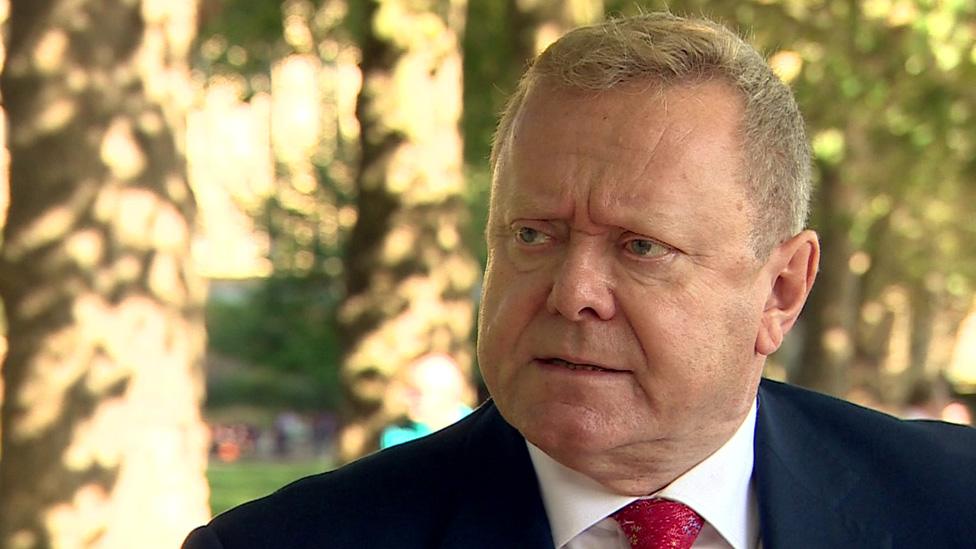Jeremy Corbyn: Labour will 'consider candidates in Northern Ireland'
- Published
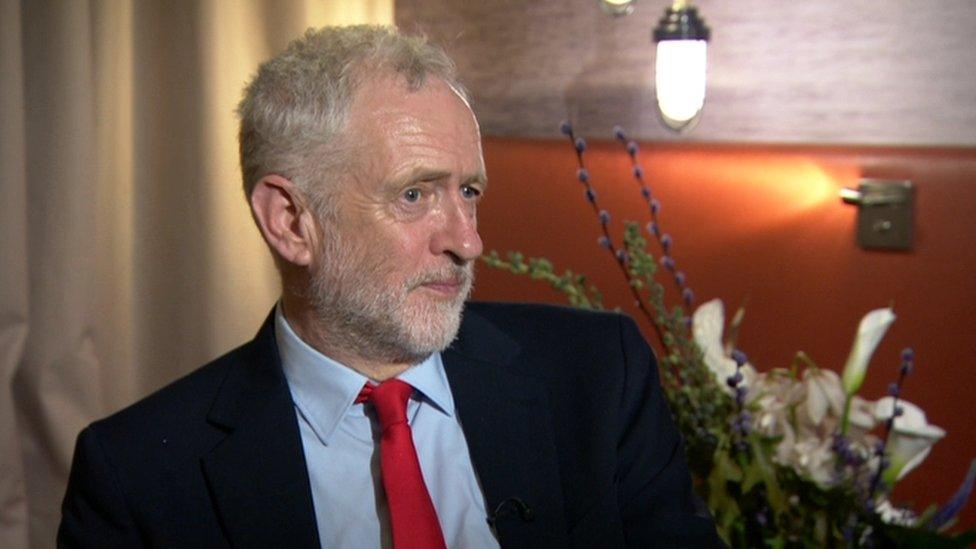
Jeremy Corbyn said the party would discuss whether to stand candidates in Northern Ireland
Labour Party leader Jeremy Corbyn has said his party will consider running candidates in Northern Ireland over the next few months.
Although the party has members and registered supporters in Northern Ireland it does not field candidates.
Party members in Northern Ireland have long campaigned for a change.
"There is a strong body of opinion in Northern Ireland that wants to be able to stand candidates," Mr Corbyn told BBC News NI.
"Up to now the party position has been the opposite of that. We will be discussing that."
Mr Corbyn was speaking to the BBC in Liverpool where his party is holding their annual conference.
He said he understood the argument to stand candidates.
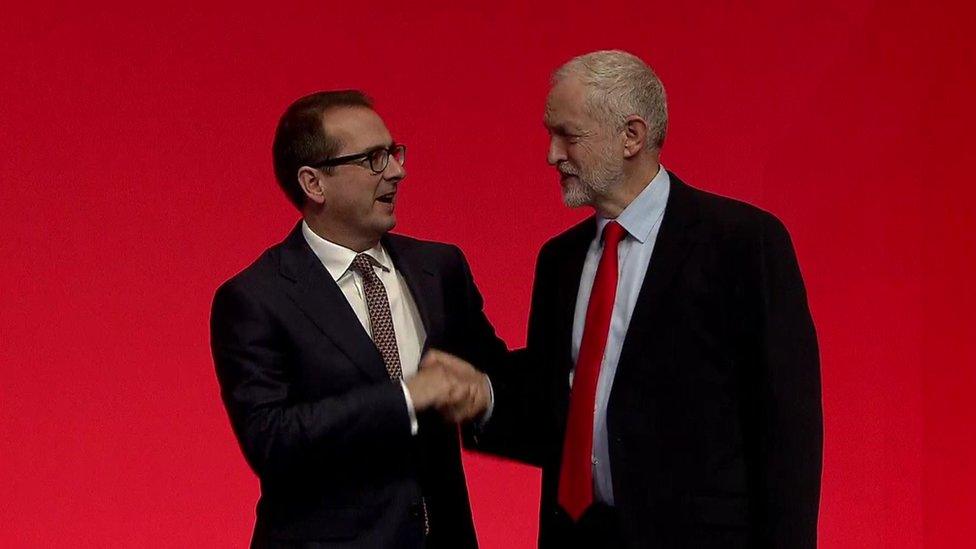
Jeremy Corbyn was re-elected as Labour Party leader on Saturday after defeating challenger Owen Smith
"There is a democratic deficit in one sense. There is a question of a relationship with other parties in Northern Ireland as well and how that will be affected.
"Let us have that discussion over the next few months.
"There has been a long-standing debate. Let us hear all sides."
'Reached out'
During the interview with BBC News NI, Mr Corbyn also talked about the implications of Brexit in Northern Ireland.
He said a future Labour government would ensure that "EU investment money lost will be replaced".
He added: "We are also doing our best to ensure that EU agreed programmes continue for the rest of the time we are members of the EU."
When asked about his past relationship with Sinn Féin, he said: "I have always reached out to everybody.
"Of course, I know people in Sinn Féin. I always felt there had to be talks that included Sinn Féin to bring about the Good Friday Agreement."
On Saturday, Mr Corbyn was re-elected leader of the party when he defeated challenger Owen Smith, who polled just under 200,000 votes..
The Islington North MP, who was first elected as leader back in 2015, was returned with an increased majority and polled over 300,000 votes.
- Published25 September 2016
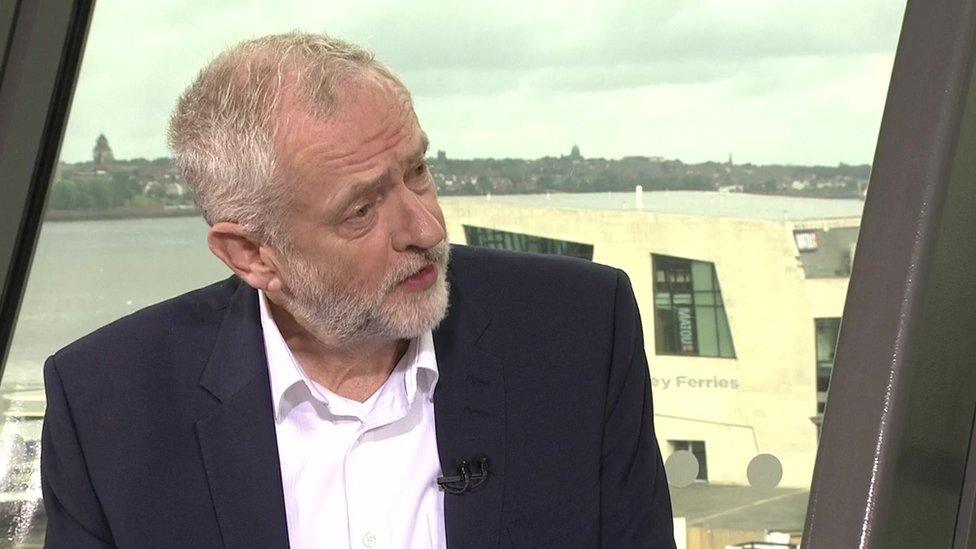
- Published24 September 2016
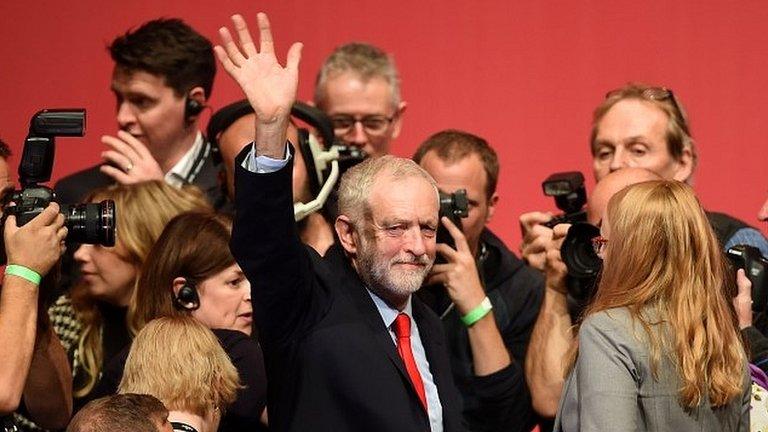
- Published23 September 2016
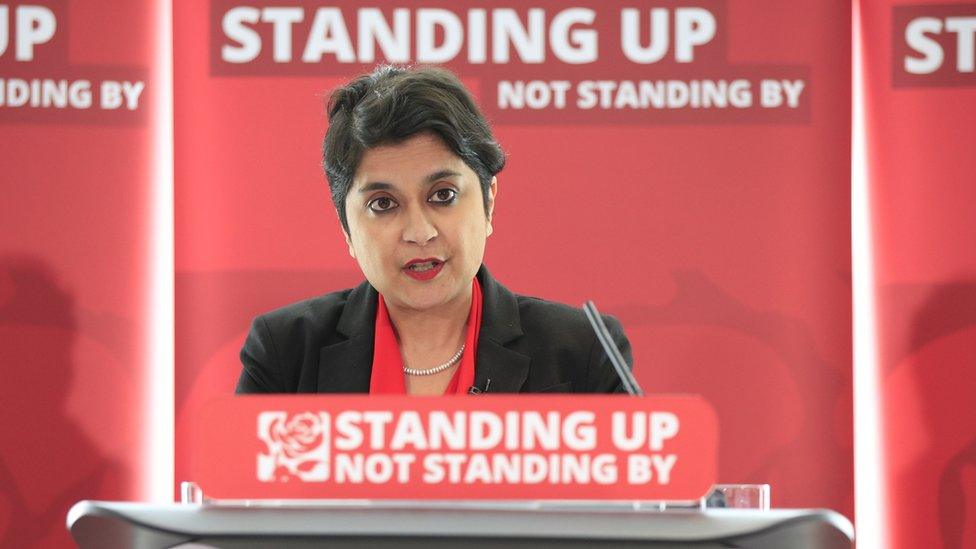
- Published23 September 2016
